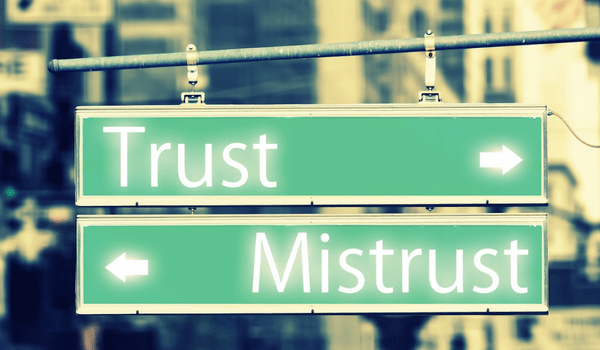There can be many reasons why middle managers often find it difficult to trust their subordinates as much as their seniors at the workplace.
One of the most common reasons is that middle managers feel pressurised to prove themselves to their seniors. In trying to do so, they tend to become more cautious in their decision-making.
Another reason is that middle managers may have less experience or knowledge than their seniors. Therefore, they may be more reliant on their subordinates for information and support. This dependence on subordinates can create a feeling of vulnerability for middle managers, which can lead to a lack of trust.
Sometimes, middle managers may have their own personal biases and prejudices that affect their perceptions and interactions with others. These biases can lead them to be less trusting of their subordinates.
“A lot of time has to go into the development of our middle managers”.
Gautam Srivastava, VP and head HR, The Leela Palaces, Hotels, and Resorts
According to Gautam Srivastava, VP and head of HR at The Leela Palaces, Hotels, and Resorts, this issue is not a new one. It has been in existence for a long time. It is just that it has snowballed in recent years. This, he believes, is because of a multi-generational workforce working together.
Srivastava feels that to cope with this, “a lot of time has to go into the development of our middle managers”. He is of the opinion that “organisations need to invest time in developing and coaching their middle managers and creating awareness about how to handle such roles.”
Atul Mathur, executive VP of Aditya Birla Capital, points out that certain middle managers feel more comfortable performing or accomplishing tasks by themselves. Therefore, they end up as micromanagers, even when they work with their teams. “It may take certain middle managers some time to condition themselves to the fact that they also need to delegate”.
“Not all middle managers are distrustful of their people. There certainly are some very good and effective team leaders and managers out there, who place a lot of trust in their juniors,” Mathur says.
“It may take certain middle managers some time to condition themselves to the fact that they also need to delegate”.
Atul Mathur, executive VP, Aditya Birla Capital
Middle managers are mostly leaders who get promoted because of their good performance or because they displayed high potential. That is why, they are often rather new to their roles and may not yet have developed the skills and experience needed to effectively manage and lead their teams. This leads to a lack of confidence in their own leadership abilities. As a result, they are unable to trust their subordinates.
According to Mathur, “Many a time, middle managers tend to distrust other employees and that is where HR and training come in to help these people, sensitise them to the fact that they are managers now, and they should learn how to handle teams, how and whom to delegate work, whom to work with and how to segment the team members accordingly”.
Middle managers may also be caught between their subordinates and their seniors, which can create a challenging and stressful work environment. This is more common when middle managers are required to manage both their subordinates and their superiors. In such situations, middle managers may feel the need to protect themselves and their own interests, even while maintaining control. This leads to their lack of trust in their subordinates.
In recent times, with remote working becoming so rampant, the challenges have only increased. In-person and face-to-face interactions have dwindled. Co-workers are not meeting daily.
“The leaders who are not insecure want their teams to grow, because they realise that’s how they themselves will grow,”
Shefali Suri, group CHRO, Greaves Cotton
Mathur says, “With remote work and the hybrid model today, the corporate world appears to be way different from what professionals have been used to. That is why, most of the time middle managers doubt whether the person working from home is genuinely working or not. There is a need to bring about a change in the mindset of managers. They need to be more trusting, especially of those working remotely. They have to understand that people working from home may not necessarily be insincere workers lazing around or sitting idle.”
Poor communication between middle managers and their subordinates can also lead to mistrust. That is why, Srivastava says that organisations need to invest in the training and development of middle managers.
Shefali Suri, group CHRO, Greaves Cotton, believes that all middle managers are not insecure about those reporting to them.
Middle managers who are more secure and trust their subordinates are able to create a positive work environment, where employees can grow. “The leaders who are not insecure want their teams to grow, because they realise that’s how they themselves will grow,” enunciates Suri.
On the other hand, middle managers who are insecure or do not trust their subordinates can end up creating a negative work environment that hinders the growth and development of their employees.
It’s important to note that trust is an essential component of any effective team or organisation. By trusting their subordinates, middle managers can facilitate greater productivity, innovation and overall success. It’s important for middle managers to work on building trust within their teams in order to create a positive and supportive work environment.




